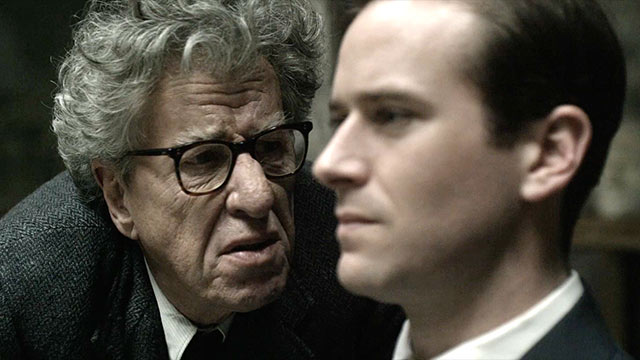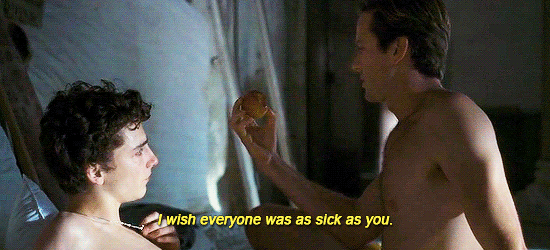
Final Portrait is notable for two reasons, and two reasons only. Unfortunately, its portrayal of the life of Alberto Giacometti isn’t one of them.
Stanley Tucci is a pretty great actor. It’s likely you’ve seen him in something by now, whether that’s The Hunger Games, Spotlight, or any of the random blockbusters he shows up in. He doesn’t always have a stellar knack for picking great films, but he tends to elevate whatever role he’s in, if only a bit. Unfortunately, like many actors, he immediately loses his charm when located behind the camera. With the exception of Big Night, his other directorial endeavors haven’t done well with critics or audiences, and that’s probably because they’re utterly unremarkable. I wish I could say Final Portrait was an exception, but it really isn’t.
The other notable aspect of Final Portrait is Armie Hammer. In spite of his questionably silly name, Armie has been vying for critical attention for years now. His first role of note was as both Winklevoss twins in Fincher’s The Social Network. J. Edgar was supposed to be his big chance to show some acting chops, but the film was a bit of a failure overall, and poor Armie was forced into less desirable films like The Lone Ranger and Mirror Mirror. After the runaway success of last year’s Call Me By Your Name, Hammer is now at that stage in his career where half of his roles are strictly for the cash, and the other half are intentional Oscar-bait. This film falls into the latter category. He also has at least a decade until the public forgets about the peach scene in Call Me By Your Name.

Final Portrait is about one of the last works of art ever produced by famed sculptor and painter Alberto Giacometti. Giacometti was known for his self-loathing and commentary on the human condition through his art. Much of his work was influenced by existentialists and surrealists of the time.
Armie Hammer plays James Lord, an art critic known for his biographies of Giacometti and Picasso. Lord arrives in Paris and runs into Giacometti quite by chance. Lord is invited to sit for one of Giacometti’s final portraits, and he agrees to do so. This begins as a quick, informal invitation.
Lord goes for his first session, and it proves to be a bit more difficult than he at first realized. Giacometti tells him “no portrait is ever finished,” a statement that encompasses the rest of the film. Lord is forced to delay his plans to return home over and over again, simply to appease Giacometti’s frustrating perfectionism.
Lord also notices that Giacometti’s muse is a prostitute that he’s been hiring for many years. He doesn’t exactly go to any great lengths to hide this fact, and his wife is very aware of the situation. We occasionally see her glance disapprovingly at Giacometti when his prostitute is around. Lord has conversations with her about this. They go nowhere.
I know I mentioned before that this is Armie Hammer’s Oscar-bait project, but it’s just as much Geoffrey Rush’s go at the gold. Rush gets to play an eccentric artist, the kind of character that gets nominated quite frequently. I didn’t realize that Rush was playing Giacometti until after the film was over. I’m not really sure if that’s a positive statement or not.
It’s hard to say much of anything about Final Portrait aside from the few facts I’ve rattled off just now. If you have a thing for vanity projects or Giacometti, you might enjoy this. It’s nothing to write home about, but the performances manage to keep it somewhat engaging, and it’s mercifully short.
5/10